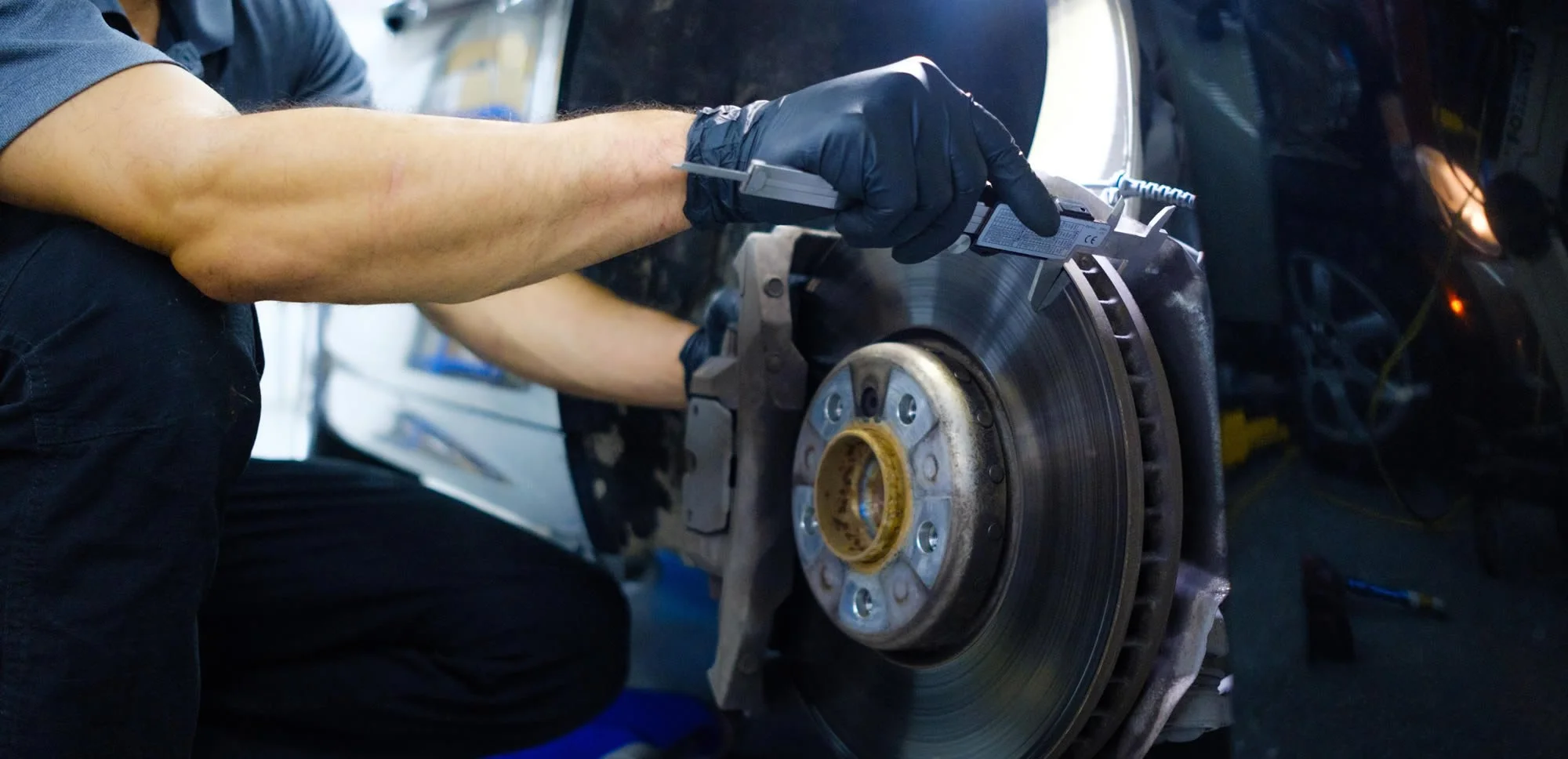
Brake Inspection & Service
Houston, Texas
Brake Inspection & Service
Brake inspection is an important part of maintaining the safety and performance of your vehicle. It involves thoroughly examining the brake system to identify any issues or potential problems that could impact the effectiveness of your brakes.
Regular brake inspections can help identify any issues with the braking system before they become major problems. This can not only help ensure the safety of yourself and others on the road, but it can also save you money on costly repairs down the line.
If you're unsure of the condition of your brakes, it's always a good idea to consult with a certified mechanic. They have the knowledge and expertise to thoroughly examine your braking system and identify any potential issues. Don't neglect the importance of brake inspection – make sure to regularly check and maintain your brakes for the safety and performance of your vehicle.
Maintaining a car's brakes is an essential aspect of vehicle ownership. Not only do brakes help ensure the safety of the driver and passengers, but they also play a crucial role in the overall performance and longevity of a vehicle.
When it comes to brake maintenance, there are a few key things to keep in mind:
Brake pads: These are the components that come into contact with the brake rotors and create friction, which helps bring the car to a stop. Over time, brake pads can wear down and become less effective. It's important to regularly check and replace them as needed to ensure proper braking performance.
Rotors: These are the metal discs that the brake pads press against to create the necessary friction. Like brake pads, rotors can become worn or damaged over time. If not properly maintained, rotors can become warped or uneven, which can lead to braking issues and potentially even accidents.
Brake fluid: This is the hydraulic fluid that helps transmit the force of the brake pedal to the brakes themselves. Brake fluid can become contaminated over time, which can cause issues with the braking system. It's important to regularly check and have a brake flush service performed on yoru vehicle to replace the old brake fluid and to ensure it is clean and functioning properly.
Brake Calipers: These are a part of your disc brake system. Brake calipers house your car's brake pads and pistons. Their job is to slow the car's wheels by creating friction with the brake rotors. The calipers use pistons to squeeze your brake pads against the rotors, which causes your car to slow down and stop.
Brake pad wear sensors: These are what accurately informs the driver about the current wear of the vehicle's brake pad. One sensor for the front axle and one sensor for the rear is installed to determine and indicate when the driver needs to perform a replacement. As brake pad wear sensors are designed to break, they should be replaced as a matter of course every time new brake pads are fitted. It's also advisable to regularly inspect the sensors, in between pad changes, and replace where necessary.
In addition to these specific components, it's also important to regularly inspect the overall condition of the braking system. This includes checking for any leaks or damage to the lines or hoses, as well as ensuring that all components are properly tightened and in good working order.
Ignoring brake maintenance can lead to a variety of issues, including reduced braking performance, increased stopping distance, and even complete brake failure. In addition to being potentially dangerous, these issues can also be costly to repair.
By regularly inspecting and maintaining your car's brakes, you can help ensure the safety of yourself and others on the road, as well as extend the life of your vehicle.
Don't neglect this important aspect of car ownership – make sure to keep your brakes in top condition at all times.
